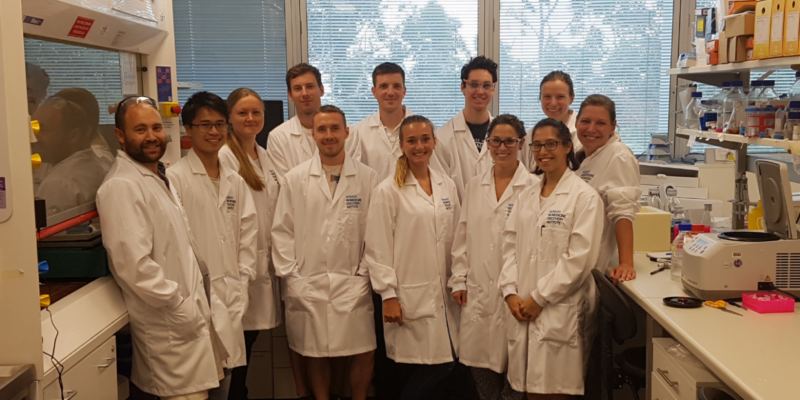Understanding antibiotics to better treat bacterial infection
The Cryle Groups focuses on antibiotics: understanding how these compounds are made in nature, how we can re-engineer these natural systems to produce new antibiotics as well as developing novel approaches to treat bacterial infections.
Given the importance of antibiotics for human health, our ultimate goal is to develop novel antibiotic therapies that we so badly need to deal with serious bacterial infections.
Research:
Antibiotics are one of the most important discoveries in human health. These compounds – largely derived from compounds found in nature – have enabled many aspects of modern medicine that we call upon today. However, the early success of antibiotics has led to a serious underinvestment in identifying new antibiotics and antimicrobial targets: this means that we as a society are in dire need of new antibiotics. One of the difficulties in achieving this goal is that antibiotics are often highly complex molecules and we are restricted to natural compounds or modified forms of these compounds. If we are to develop new antibiotics, we will need to reengineer the natural enzymatic machinery that produces antibiotics – and this will only be possible once we understand the how these complex enzymatic machineries work.
Thus, the Cryle group aims to understand the biosynthesis of one of the most important classes of clinically relevant antibiotics – the glycopeptide antibiotics, such as teicoplanin and vancomycin – in order to be able to reengineer this machinery and thus produce novel antibiotics.
The Cryle group applies a range of techniques, including synthetic chemistry, biocatalysis, biochemistry and structural biology, to study these systems. The group also applies these techniques to develop novel antibiotic compounds and explore potential new targets for treating bacterial infections: here, with a focus on the serious bacterial pathogen Staphylococcus aureus.
Ultimately, this research will enable the development of novel antibiotic therapies as well as unlock new pathways to treat serious bacterial infections in the clinic.

- Characterising the mega-enzyme biosynthetic machineries that produce the many important antibiotics, with a focus on the glycopeptide antibiotics
- Reengineering natural biosynthesis pathways to produce novel antibiotics
- Developing new antibiotics and identifying potential new targets for antimicrobial therapies
- More information about Associate Professor Cryle is availble on his website https://research.monash.edu/en/persons/max-cryle.
- View Associate Professor Cryle’s Google Scholar page.
- View Associate Professor Cryle’s ORCID page.
- Read Associate Professor Cryle’s open access review publications:
1. The many faces and important roles of protein–protein interactions during non-ribosomal peptide synthesis
2. Unrivalled diversity: the many roles and reactions of bacterial cytochromes P450 in secondary metabolism
3. Structural aspects of phenylglycines, their biosynthesis and occurrence in peptide natural products